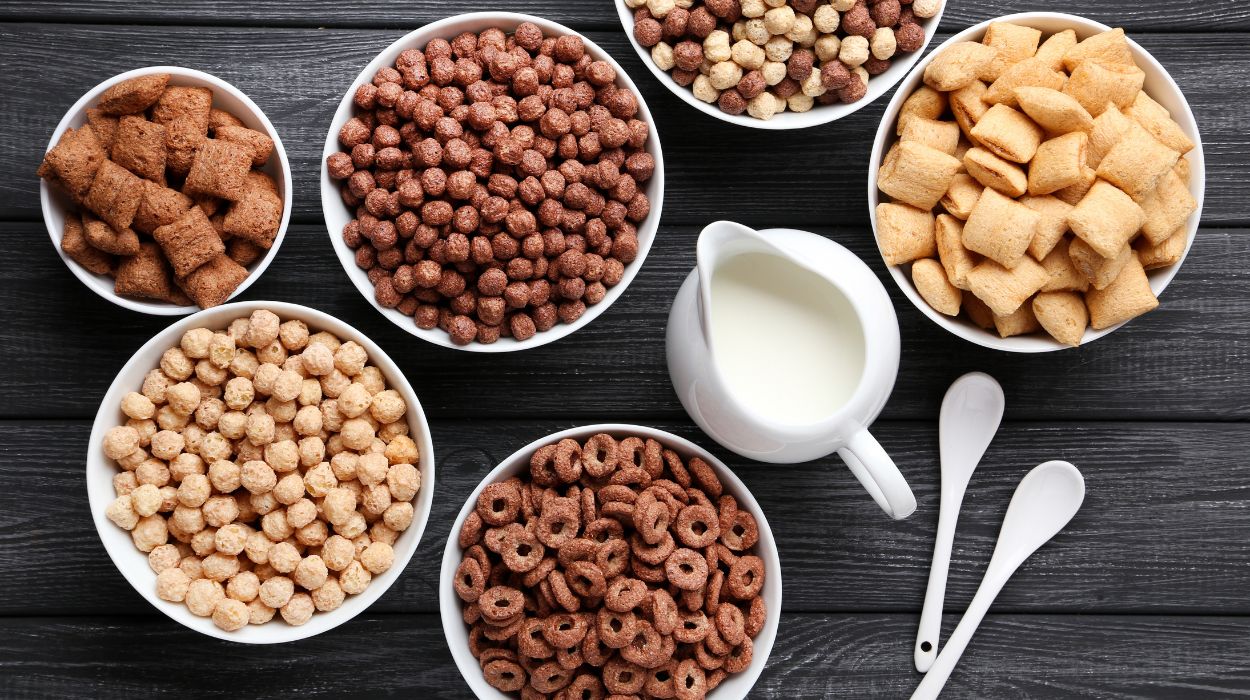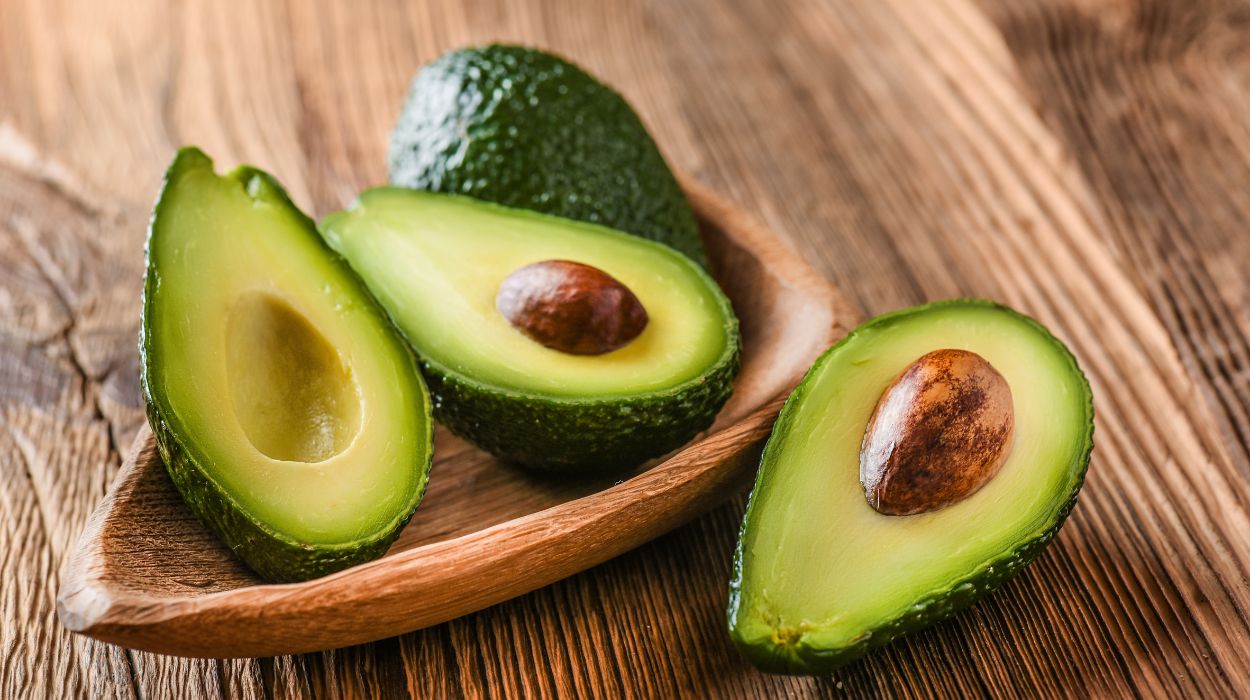Being underweight can be just as detrimental to health as being overweight. Calculating your BMI (body mass index), which is your weight in relation to your height, can indicate if you are below the normal weight range. Undereating, having a fast metabolism, and fighting certain diseases all can play a role in being underweight. Modifying your eating approach–what you eat, how much, and how often–can help increase weight, as well as treat any underlying conditions that may be preventing weight gain.
How To Gain Weight Quick?
- Increase Your Calorie Intake
- Increase Your Protein Intake
- Increase Your Intake Of Carbs And Fat
- Increase Your Intake Of Energy-Dense Foods
How To Gain Weight?
Increase Your Calorie Intake
To increase weight, it’s best to start by adding extra calories to your diet, however, blindly adding any and all calories may not be the best approach. It’s important to focus on foods that have nutrient-dense calories as opposed to empty calories, such as whole foods. It’s best to prioritize whole forms of the three main macronutrients: protein, fats, and complex carbohydrates, keeping in mind your unique health, tolerance, and background. For example, generally, females and males often require different amounts of nutrients, and much will depend on your age, food allergies or sensitivities, and any underlying health conditions.
Increase Your Protein Intake
Salmon
All animal foods contain protein, and wild-caught fish like salmon are some of the best sources. A 6-ounce salmon filet has almost 40 grams of protein. This alone almost meets the daily protein recommendations for adults (about 50-60 grams of protein a day), Additionally, salmon is one of the fattier fishes which means it also contains essential omega-3 fats.
Eggs
Eggs have many nutrients, including 6 grams of protein per egg. While not enough protein on its own to fulfill the daily recommended amount, eggs are a great addition to a diet when looking to put on weight.
Protein Shakes
It’s always best to get protein and other nutrients directly from food, but sometimes a shake can be a great way to supplement protein when it’s hard to get it from other sources. This is especially true for vegans who may need additional protein to round out their diet.
Protein Supplements
When food is not enough, adding protein supplements can help. Protein supplements can be made from either plant sources (soy, peas, rice, hemp) or animal courses (eggs, milk). Be mindful of supplements that contain unwanted ingredients such as fillers and added color or sugar.
Increase Your Intake Of Carbs And Fat
Rice
Rice is a non-gluten-containing grain that contains 45 grams of carbs per serving. For reference, the average healthy adult should consume 100-200 grams of carbs a day. For more nutrient-dense rice options, opt for brown, black, or basmati rice.
Whole Grain Bread
Whole-grain bread can be a source of additional carbohydrates, however, it may not be the best option for those who need to avoid gluten. Additionally, many pieces of bread are heavily refined, leaving little nutritive value, so choose whole grain bread that contains visible, whole grains, such as kernels and seeds.
Whole Grain Cereals

Any cereals containing oats, nuts, seeds, corn, rice, and other whole grains can be beneficial in upping your carbohydrate intake. Be sure to avoid cereals with preservatives, added sugar, and artificial ingredients.
Dried Fruits
Dried fruits to explore include dates, raisins, figs, mango, coconut, banana, apple, goji berries, and cranberries. It has many vitamins and minerals which can enhance health and help promote a healthy weight. However, dried fruit can also be high in sugar, so enjoy it in moderation.
Dark Chocolate
Dark chocolate is one of the healthiest dessert options to indulge in. It contains fiber, iron, niacin, magnesium, and copper, and is a strong antioxidant. It’s been shown to diversify the gut microbiome and improve brain function and heart health. It’s low in sugar and dairy making it easily digestible for most individuals.
Other Starches
White potatoes, sweet potatoes, squash, and rutabaga are starchy vegetables that can add good sources of carbs to any diet. Other starches include bread, rice, pasta, millet, amaranth, and quinoa – all of which serve as carbohydrates support, and may add additional protein, depending on the starch. Additionally, the process of cooking then cooling white rice and potatoes turns these starches into resistant starches which act as prebiotics (they help the beneficial bacteria in the gut grow).
Olive Oil
While many vegetable and refined oils can have negative implications for health, olive oil has many benefits. Olive oil contains a variety of nutritional components and is considered one of the healthiest forms of omega-3 fats.
Nuts And Seeds
Did you know that many nuts are considered dry fruits? Almonds, cashews, walnuts, etc. all count. What’s great about nuts is that they offer all three of the major macronutrients – protein, carbohydrates, and healthy fats. They also provide good sources of dietary fiber.
Avocado

Avocado is the only fruit (aside from nuts) that delivers a powerful punch of healthy fat. One avocado has about 22 grams of fat, in addition to 12 grams of carbs. They even have small amounts of protein and are a great source of fiber.
Increase Your Intake Of Energy-Dense Foods
A food that is more energy-dense has more calories (energy) in that amount of food compared to the same amount of other foods. For example, one cup of french fries is more energy-dense than one cup of broccoli. However, there are ways to increase energy density without indulging too much in unhealthy foods or sacrificing quality.
Why Is Gaining Weight Important?
A Healthy Body Weight
A healthy body weight is not determined by the number of pounds a person weighs alone. Rather, healthy body weight is determined by a person’s BMI (body mass index) which is a calculation[1] of weight in relation to height. An ideal BMI is between 18.5 and 24.9, therefore, any BMI under 18.5 would be considered “underweight”.
Fighting Illness
Being inflicted with an illness such as a disease or infection is a common reason why a person might be underweight. The nature of the illness may inhibit nutrient absorption, minimize appetite, or disrupt hormone balance – all of which can make it difficult to put on weight. Additionally, certain medications may interfere with the ability to maintain a healthy weight. If an illness is preventing weight gain, it’s essential to get a proper medical evaluation and testing to identify any health conditions and treat them.
Avoidant/Restrictive Food Intake Disorder
ARFID[2] (Avoidant/Restrictive Food Intake Disorder) is a new term for Feeding Disorder of Early Infancy and Childhood (a type of eating disorder previously only children under 7 were diagnosed with). A child with ARFID might be mistakenly chalked up to being a “picky eater,” as this disorder causes individuals to have a lack of interest in or disgust of certain foods – not just due to the taste, but due to the texture, sight, smell, and associations with the food. Any long-term avoidance or restriction of caloric intake can lead to being underweight. Other common eating disorders that restrict certain foods/calories include anorexia nervosa, bulimia nervosa, and orthorexia, among others.
What Does It Mean To Be ‘Underweight’?
Being underweight can be equally as problematic as being overweight. Like most things in life, being on either end of the extreme can pose serious health consequences. To be considered underweight is to have a BMI (body mass index) of less than 18.5. BMI is calculated with a simple equation: divide your weight into kilograms or pounds by your squared height in meters or feet. Use this BMI calculator[1] to discover your own BMI.
Health Risks Linked To Being Underweight
Being underweight can lead to a host of health issues.[3] Some include bone loss or weakness, problems with skin, hair, teeth, and nails, and lowered immunity. People who are underweight may also be anemic or experience fatigue. For women who are underweight, it may lead to irregular or absent periods and trouble conceiving.
Causes Of Being Underweight
Eating Disorders
Eating disorders are conditions in which a person engages in ongoing, severe behavioral patterns that disrupt healthy eating behaviors. Obsessive and distressing thoughts and feelings often afflict people with eating disorders. Many eating disorders (e.g., anorexia, pica) involve the restriction or avoidance of certain foods, enough to deplete the necessary amount of nutrients needed for optimal weight and health.
Thyroid Problems
When the thyroid is not functioning properly, unhealthy weight loss can be a consequence. The thyroid produces thyroid hormone, which plays an important role in weight management and metabolism. A common thyroid condition known as hyperthyroidism[4] happens when the thyroid gland is overactive, producing too much thyroid hormone which can accelerate metabolism to an unhealthy rate. Ask your doctor for a full thyroid blood panel to check your thyroid. If you have hyperthyroidism, you’ll need to heal it to get your weight into a normal range.
Celiac Disease
Celiac Disease is an autoimmune condition (an individual may be genetically predisposed to it) in which the ingestion of gluten can create damage in the small intestines. Gluten is a protein naturally found in grains such as wheat, barley, and rye, and is often added to packaged foods like soy sauce. Other foods may be cross-contaminated with gluten if they were prepared in the same environment. Humans have villi (small microscopic hairs) in the small intestines which absorb nutrients, however, gluten damages the villi in individuals with celiac disease. This can lead to malnutrition, and by extension, weight loss. Ask your doctor to test you for celiac disease. If you have it, you’ll need to avoid gluten completely.
Diabetes
In healthy individuals, the pancreas produces the hormone insulin in response to eating carbohydrates. Individuals with diabetes do not produce enough insulin, which can have serious implications for the body. Insulin is supposed to take the glucose from the carbs and bring it to our cells for energy. However, when there isn’t enough insulin, as is the case with diabetes, the cells cannot get the energy they need. Instead of burning glucose for energy, the body will start burning fat and muscle, which can lead to lose weight.
Cancer
Weight loss may be a consequence of cancer itself, or treatment for cancer. Cancer cells take up a lot of the body’s energy (more than healthy cells) and in doing so, may cause the body to burn excess energy. Certain substances in cancer cells may also interfere with nutrient absorption. For anyone undergoing conventional cancer treatment, the drugs may have an appetite-suppressing side effect which may also contribute to a decrease in weight.
Infections
Though there are different types of infections, many of them can contribute to weight loss. An infection can start when a germ, such as bacteria, gets into the body and bloodstream. Some more serious infections, including tuberculosis and HIV, can increase metabolic rates. It’s also not uncommon to experience a fever during an infection, which may decrease appetite. Most appetites will return to normal when the infection clears.
Fastest Way To Gain Weight Without Eating Too Much
One way to increase weight without overeating is to view your plate as prime real estate – every little bit of space counts, so be mindful of what you put on it. Don’t add more food to your plate; instead, choose nutrient-dense foods to take up the space. Choose whole grains over white and refined grains, whole foods like fruits, vegetables, and nuts, rather than processed foods containing synthesized versions of the real thing. Swap out your low-fat dairy for full-fat dairy.
Other swaps include taking out fruit juices and sodas, which only contain sugar, and drinking nutrient-filled smoothies instead. Make sure to put sources of protein and fat in your smoothies (never just fruit), such as nut butter and avocado.
Try adding a little something extra to each dish – sprinkle a little cheese on your veggies, add some nuts to your oatmeal, dip your carrots in hummus, etc.
Finally, consider an exercise routine that helps to build muscle growth. Many strength training workouts help to increase muscle mass, and since muscle weighs more than fat, an exercise routine focused on muscle building can help increase overall body weight.
How Long Will It Take To Healthy Weight Gain?
All bodies are unique and gaining weight will take some people longer than others. This depends on a variety of factors including age, sex, and state of health. The cause of being underweight can drastically impact how long it will take to regain the necessary amount of weight for optimal health. The fastest way to gain weight is to focus on both diet and muscle-building exercises simultaneously, assuming you are already addressing any illnesses that are preventing weight gain.
Incorporating an additional 500 a day would increase a person’s weight by roughly 15 pounds over the course of six months. Be sure to work with a qualified practitioner who can give you a tailored weight gain plan and personalized timeframe.
During Pregnancy
Weight gain is an expected part of pregnancy. On average, women gain 30 pounds over the course of their pregnancy.[5] However, some women have a hard time gaining the necessary amount of weight. This can be because the woman was already underweight or may have a hard time keeping food down during the first trimester.
For women who need to increase weight during pregnancy, it’s advised not to skip meals. Rather, eat smaller meals more frequently (5-6 times a day), always keeping in mind nutrient-dense choices over empty calories. Additionally, think of ways to top off your food with healthy sources of calories – spreading cheese, avocado, or nut butter on toast, eating veggies with bean-based dips, adding protein sources like seeds to smoothies, etc.
For Toddlers
When a child does not gain enough weight in relation to their peers it can lead to FTT (Failure to Thrive). Always consult your pediatrician to uncover any underlying causes for your child’s lack of weight gain. The same principles of healthy eating and prioritizing macronutrients (protein, fat, and carbs) that apply to adults also apply to toddlers. Parents should feed their underweight children nutrient-dense foods with high calories, such as full-fat yogurt, nut butter, and fattier cuts of meat and fish.
Also, try to limit unnecessary liquids. Children have small stomachs, so they tend to get fuller faster. Reserve that space for whole foods.
Conclusion
Many factors can contribute to being underweight – disordered eating, illnesses, and genetic factors. Regardless of the cause, being underweight can pose serious health complications in the long term, which is why for those who are underweight, it’s important to take safe and effective measures to increase your BMI so that it is over 18.5 (but under 24.9). Focusing on high-quality, whole foods with adequate protein, carbohydrates, fiber, and fat, not skipping meals, and engaging in muscle-building workouts have been shown to be effective in helping individuals gain the necessary weight.
 Expert's opinion
Expert's opinion
